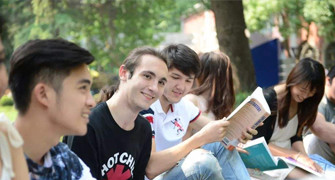In August 2024, Professor WEI Lijia from our school was granted a Key Project titled "Research on the Impact of Artificial Intelligence and Algorithms on Economic Decision-Making" by the National Natural Science Foundation of China (NSFC), with 1.6 million RMB in direct funding. The research team includes Associate Professor Shen Bo, Associate Researcher Sun Junze, Associate Researcher Zhang Shanshan, and Postdoctoral Researcher Zhang Chen from our school, as well as leading scholars from Nanjing Audit University and renowned overseas institutions.
As the primary national channel supporting basic and applied research, NSFC projects serve as a critical benchmark for evaluating universities' scientific capabilities. This project underscores our school's role in advancing scientific innovation, fostering interdisciplinary collaboration, addressing national strategic needs, and enhancing global competitiveness.

About the Principal Investigator
WEI Lijia is a Professor and Doctoral Supervisor at WHU School of Economics and Management, and Director of the Department of Mathematical Economics and Finance. His research focuses on behavioral and experimental economics and the digital economy.
Key Roles & Achievements:
Co-leader of the Economics "101 Plan" (Behavioral and Experimental Economics) under China's Ministry of Education.
Guest Editor for China Economic Review and other international journals.
Published 30+ high-impact papers in journals such as Marketing Science, Econometric Theory, Experimental Economics, European Economic Review, and China Industrial Economics.
Translated Handbook of Experimental Economics Methods (Chinese edition).
Led multiple national projects, including NSFC Key/General/Youth Programs, and innovation funds under the Ministry of Education.
Project Overview:
The approval of this project marks a milestone in interdisciplinary research on AI and behavioral decision-making at our school. It explores three core dimensions:
Enhancing strategic thinking through AI-augmented decision processes.
Mitigating biases via algorithmic information integration.
Optimizing social welfare through AI-driven image shaping.
By combining behavioral experiments with real-world applications (e.g., algorithmic trading and AI-assisted healthcare), the project aims to uncover synergies between AI and human decision-making, providing theoretical foundations and actionable solutions for economic practices.
 Faculty and Staff
Faculty and Staff Academics
Academics International Exchange
International Exchange







